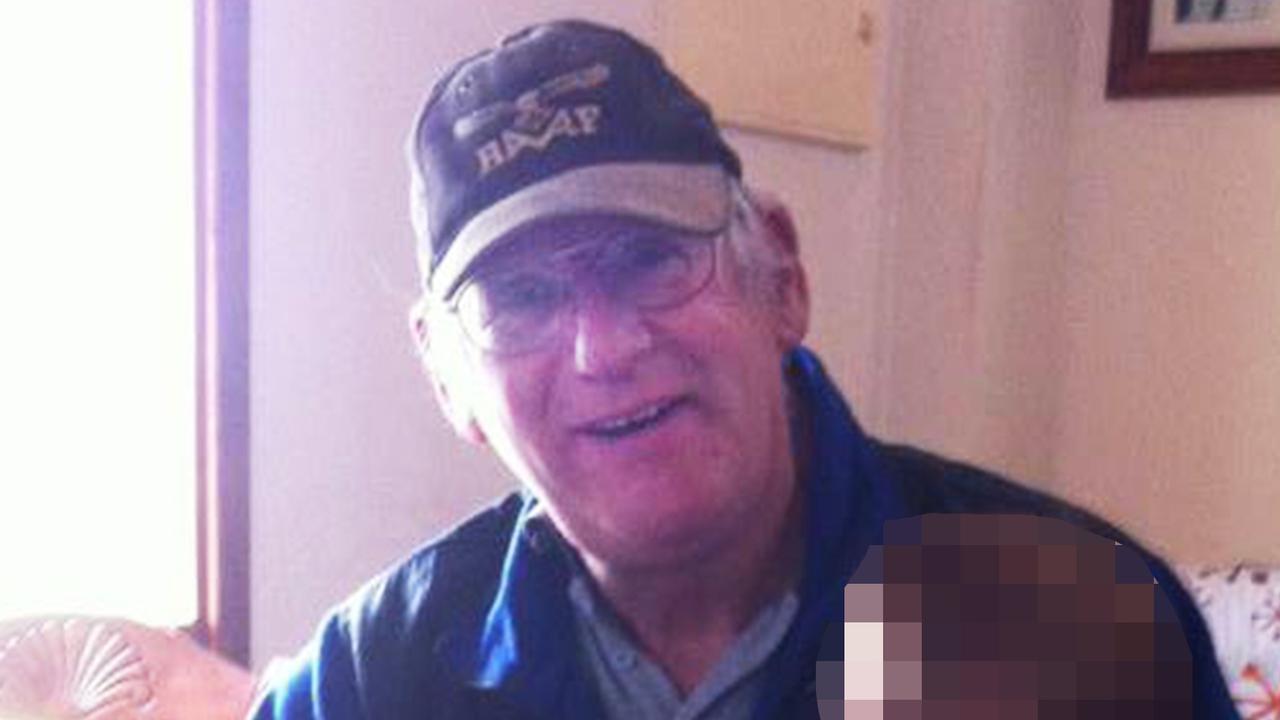While I Was Sleeping: Why Ben Hyde wants his crash to highlight the ripple effect of road trauma
The ripple effect from road trauma spreads far and wide and lingers forever. Here’s an insight into the tragic reality stemming from a massive Adelaide crash.
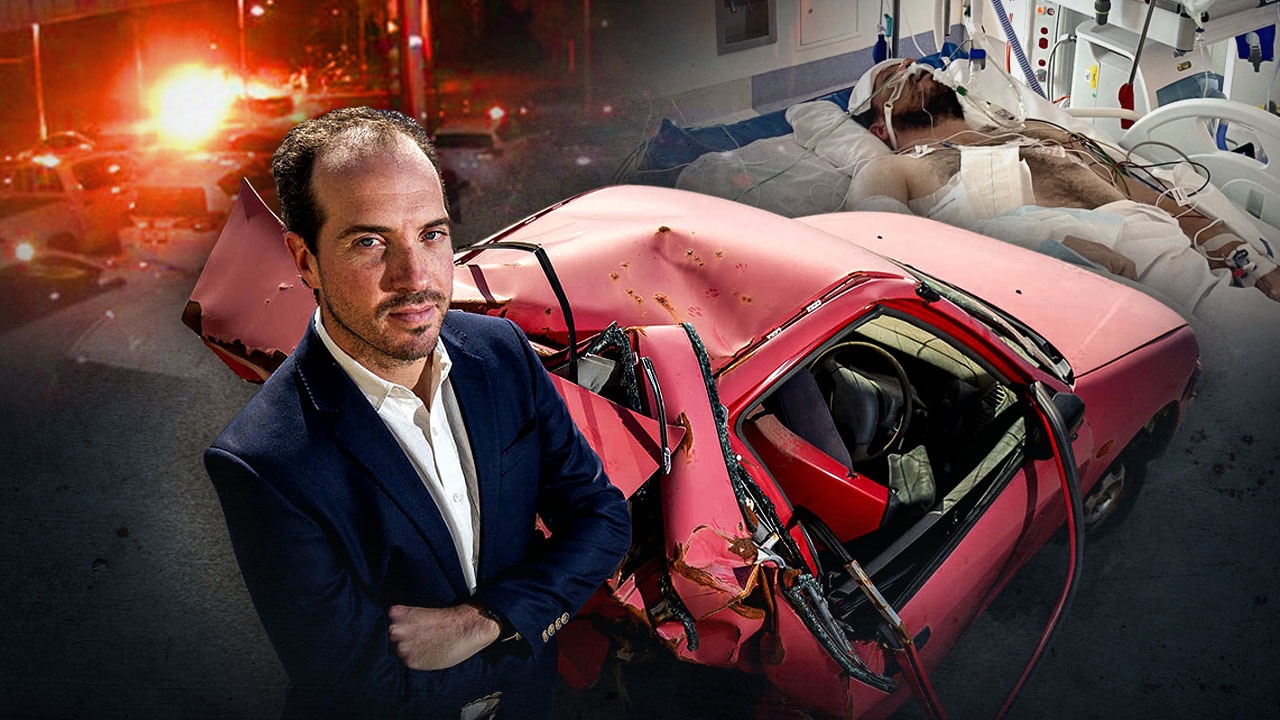
SA News
Don't miss out on the headlines from SA News. Followed categories will be added to My News.
When Tania Hyde arrived at the Royal Adelaide Hospital on October 4, 2021, she had no idea if her husband was dead or alive.
Ben Hyde had been the innocent victim of drugged, speeding driver Luigi Gligora, who ploughed into his car at 170km/h.
He had been dragged by good Samaritans, unconscious and with life-threatening injuries, from his burning vehicle.
After Tania’s desperate calls to Ben were finally answered by a police officer, she left the couple’s two sons Oliver and Ari, then aged five and two, with a friend and rushed to the hospital.
“We presented at the front desk and I remember I just wanted to drop to the ground, everything felt heavy,” Tania said.
“I didn’t quite understand what was going on but they weren’t taking me directly to (Ben).
“We got put into a little waiting room, police officers greeted us in there and they were asking questions … but I didn’t know.
“It felt like all night I waited to see him.”
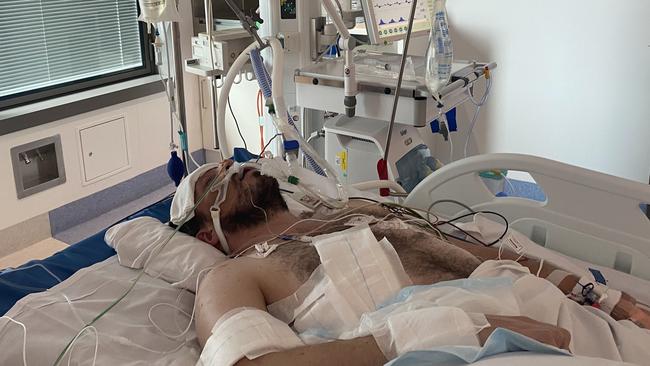
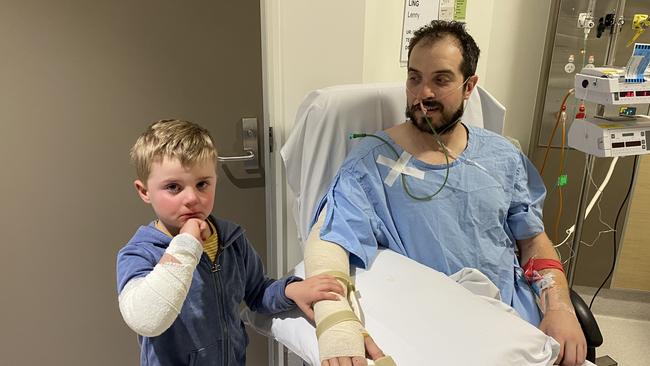
READ MORE:
* READ BEN’S STORY IN HIS OWN WORDS
* ARRIVE ALIVE CAMPAIGN LAUNCH
When she finally saw her husband, he was on a stretcher. His eyelashes and beard singed and the smell of burning flesh hot in the air.
Since that night, Tania has experienced post-traumatic stress responses because of what she went through then and in the months that followed.
After putting the majority of her life on hold to look after not just their children, but also her husband, even thinking about the crash still brings back the fear she felt in that moment.
“Even the way I feel right now is exactly how I was in the hospital,” Tania said, speaking to Ben during the filming of his documentary While I Was Sleeping, three years after the crash.
“It was absolutely life-changing. I wouldn’t wish this upon your worst enemy.”
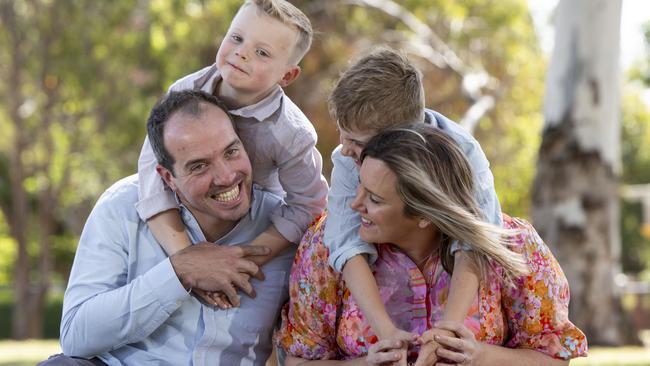
But the reality of road trauma is that it isn’t just Tania – or the immediate family of victims – who grapple with the carnage of one person’s reckless actions.
Ben’s mum and dad were forced to make desperate dashes from the Murraylands and APY Lands at the time of the crash, while Tania’s parents raced back from the Fleurieu Peninsula to help hold the family together.
“Our immediate friends, our immediate family, my mum and dad still struggle hugely with PTSD, particularly my mum, from that night and what she experienced,” Tania said.
“Ben’s workplace, the school community that we’re now a part of … everybody has been affected by this in our own way.
“We have friends with PTSD – it was their best mate, their schoolmate, their work colleague.
“It stopped a lot of people in their tracks and has affected people greatly.”
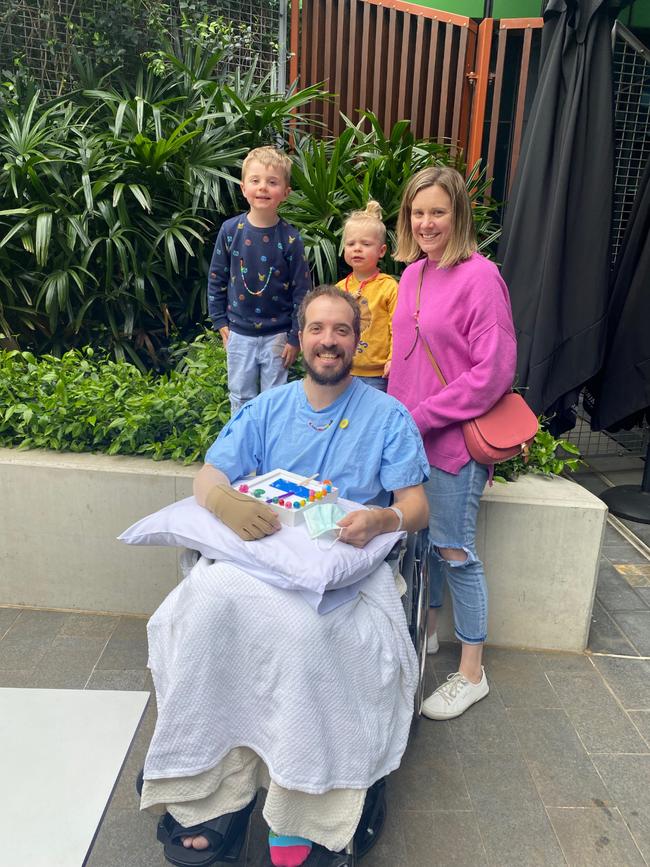
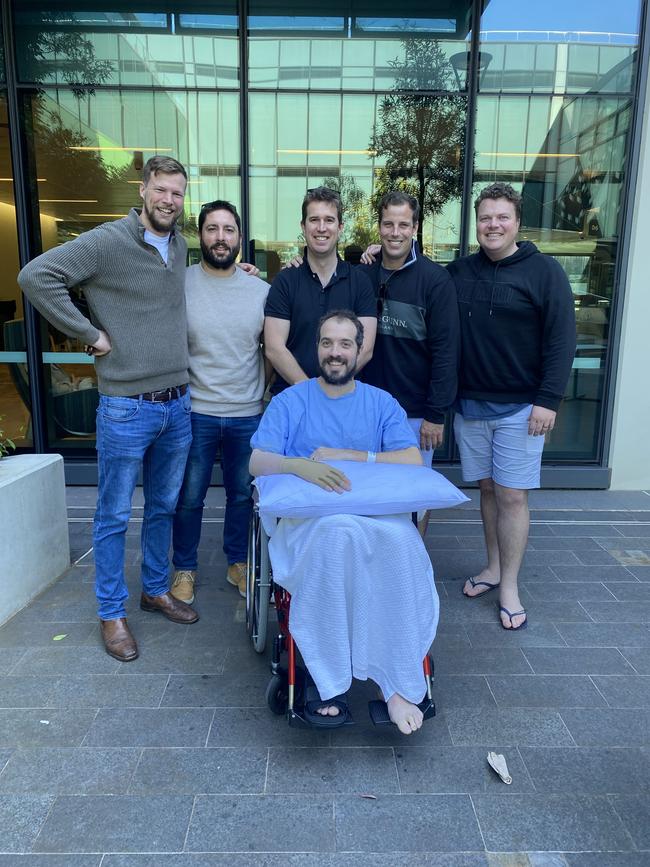
SA Police Brevet Sergeant Jason Thiele, who spent eight years as a Major Crash investigator dealing with the state’s most horrific crashes and worked on Ben’s case, said the impact also extended to first responders.
According to the Black Dog Institute, an estimated one in 10 emergency services personnel will develop PTSD related to critical incidents.
“You just have to try not to personalise it as best as you can,” Sgt Thiele said.
“It’s also about having supportive family and work colleagues for the aftermath as well that you can turn to and talk about it.”
Even before his crash, Ben was no stranger to the impact the road toll had on our community.
During his time as a police reporter at The Advertiser, he had sat down with numerous families who would tell of their pain and loss, which was palpable and often all-consuming.
“As journalists we’re confronted with it daily, but you have to just move on – and that’s often only from crashes that are fatal, let alone serious injury ones,” Ben said.
“But the reality is that so many of them happen.
“Every single time they do, there is a victim and then there’s the victim’s support network, family, friends … and it touches all of them in different ways.”
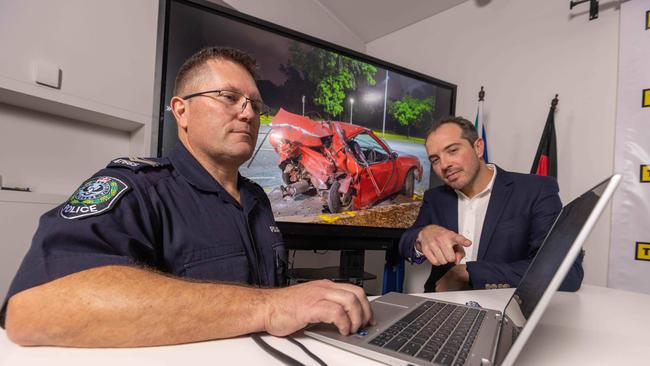
Of the hundreds of South Australians seriously injured on our roads every year, about 50 will end up under the Lifetime Support Authority, requiring ongoing and often lifelong care and treatment.
Lifetime Support Authority chief executive Rick Howe said while there were many good news stories about those who recovered, many victims’ lives would never be the same.
“We’re looking after their rehab, providing the treatment, the care that people need for as long as they need it for the rest of their life,” he said.
“That’s before you think about the impact of the family, how they’ll deal with it and the decisions they’ll have to make on their behalf.
“The flow on effect to those people around them is something that gets lost but is one of the biggest things we have to consider.”
It is that ripple effect that Ben hopes to highlight in sharing his story.
“It doesn’t need to happen. There are not many ‘accidents’ that actually happen on the road – most of them are collisions based on people speeding, drunk driving or inattention,” Ben said.
“I think people need to stop and think about that and we could reduce it significantly.”
More Coverage
Originally published as While I Was Sleeping: Why Ben Hyde wants his crash to highlight the ripple effect of road trauma





